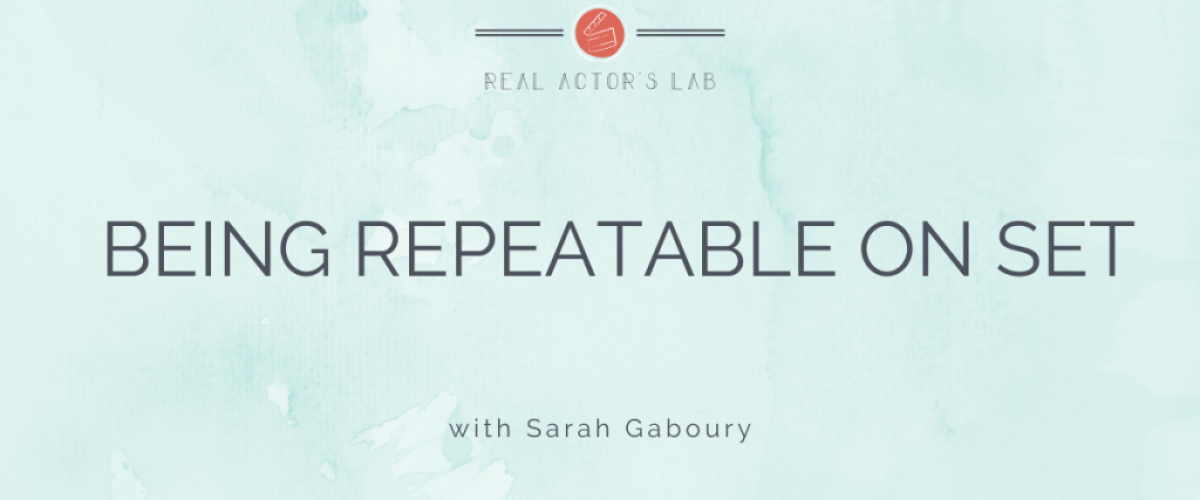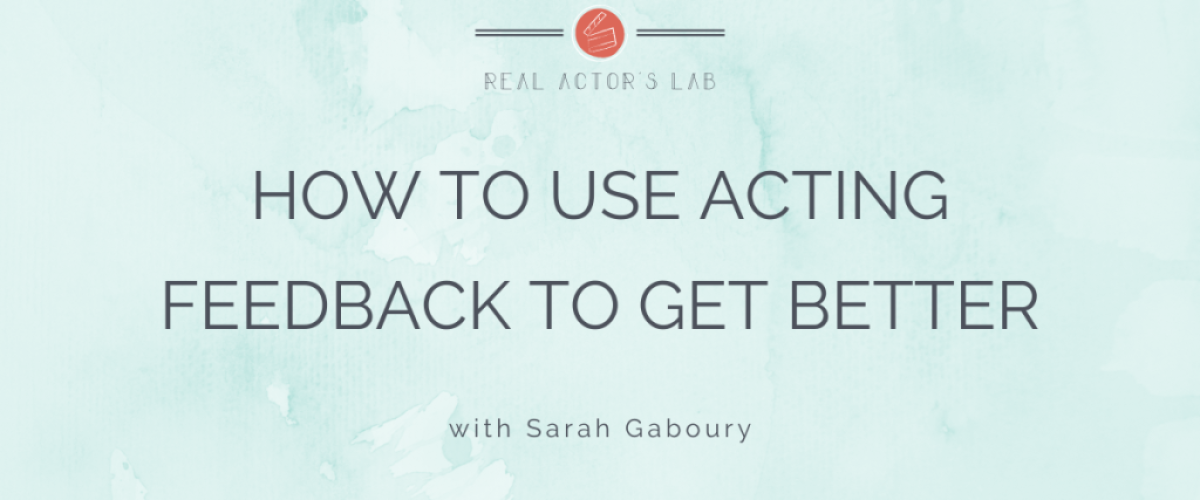How do I keep continuity as an actor?
Many actors feel intimidated on set, even if they have been around the block. There’s a lot to think about and a lot to keep track of. In this clip we discuss how to maintain continuity in your takes and the best way to use your rehearsal time.
Beyond these tips in the below clip, keep in mind that you are on that set for a reason. You’re there to do a job so respectfully own your space on set. You’ll probably get limited rehearsal time, so use that time to make sure you’re ready to go. Ask the director clarifying questions if you need to and don’t be afraid to prepare how you need to prepare, even if the leads or other actors aren’t going full out. Of course you’ll be respectful of the time, but don’t feel that you can’t get what you need.
When it comes to continuity, another element not discussed in this particular clip but which must be considered is emotional continuity. Not only do your physical activities with blocking, props, etc. need to be repeatable — but your basic emotional arc should usually remain the same unless you have the green light to go a totally different direction. Sometimes your best take won’t get used because it doesn’t cut together with the other shots.
While the director is always your main go-to, if you aren’t getting the support you need from the director and you have a very intense eating or prop or blocking scene, the script supervisor can be a great person to have in your corner. Great script supervisors freaking blow me away. I have been on sets where they’ve absolutely been the key to helping emerging actors keep track of everything so they can also focus on rediscovering their choices fresh every time and not become a robot.
This rediscovery of your choices is what we work on all the time in class so that you can repeat things and still keep it fresh.
Try filming yourself to practice continuity in your scene work so you are less thrown when you get to set!
CLASS CLIP TRANSCRIPTION
Student: When you’re worrying about continuity, but also trying to, you know, stay true to the moment, what is something that you’ve done to deal with that? Because I know in my experiences playing with stuff like that, I’ve always found it difficult to do things that are very easily repeatable or something that’s not going to, if we have to go back, something that’s not going to be completely unrepeatable. Or like not repeat the same, you know, like not get stuck in the same performance over and over again while trying to keep continuity going.
Sarah: It depends on what—it’s a good question, and I think it really depends on what the action is that you’re doing. For simple things, it will be your responsibility when you first do some of your first wide shots, to repeat, like oh, this is where I was drinking the water, this is where I was…and so you want to think about that ahead of time. But if you have a really complicated scene, it’s’ a really good idea to make good friends with the script supervisor. Because that’s what they’re for. They are there for you for that. And they’ll help you, and so you can enroll them and say, hey I’m really trying to…and they will help you with that.
But I do think it’s one of the reasons why you can also figure out a lot of that stuff in the first blocking with the director and talk it out a little bit. Especially if it feels, it’s really, I think it’s really good to just say, I just want to make sure I don’t screw this up. But when you rehearse, a lot of actors get a little nervous on set, especially if they haven’t been on set a lot, and they’ll see other like, you know, if you’re on a show and you’ve got the other series regulars, I think what happens sometimes is you can get nervous and intimidated by regulars who’ve been on the show, and they come in and they do their rehearsal, and they’re like, they’ve barely memorized it yet, and they’re kind of half-assing they’re blocking, and they’re not acting in the rehearsal, and so then you can feel like, oh that’s kind of what I’m supposed to do. Like I’m not really supposed to act.
I really think it’s positive to take that time to really, that is your time, that might be your only rehearsal. So to ask all those questions of the director at that moment, to practice, like okay I’m cooking eggs, what am I doing to my partner and how can I use my action to help with that? And get every opportunity to rehearse that you can. And don’t be, don’t be…there’s, I mean there will literally be like series leads who will show up and barely know their lines and kind of fumble through it, but don’t be fooled. Because there’s plenty of other people who will not do that, and who will come up and school everybody. And they’re the ones who have the careers that you want.




